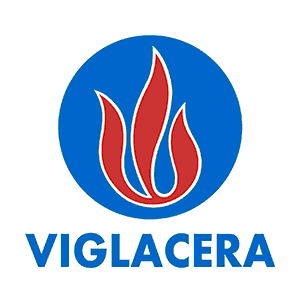Authorities and construction companies have raised concerns that limited demand for low-income housing estates will lead to profiteering among speculators.
According to the Ministry of Construction, there are 527 low-income housing projects with a total registered investment of VND132 trillion (US$7 billion). Together these projects aim to provide more than 205,000 apartments for 821,000 low-incomer earners.
Yet to date only 55 projects have started; according to Nguyen Manh Ha from the ministry.

Investors of low-income housing projects are facing many difficulties related to securing capital and administrative procedures.
Most low-income housing projects were being undertaken by private companies who in the wake of the world economic crisis could not raise enough capital from potential home buyers to complete the projects, Ha explained.
Nguyen Van Hung, former headmaster of the Construction University, said the State should have more specific and clearer policies to attract investors.
Vu Ngoc Dam from the Housing Management Department of the Ha Noi Construction Department said by the fourth quarter of the year, the Viet Nam Urban and Housing Development Group would complete 800 apartments.
Who would be eligible to buy into the low cost apartments was still uncertain, Hung said, as regulations would not be ready until April.
No customers
Tran Duong from the FBS joint stock company said the company had five projects for low-income earners underway in Thai Binh Province.
One project had already been completed but the company was experiencing problems finding customers as locals had not taken to the idea of living in apartments.
Even after introducing a policy allowing customers to pay by installments, no difference in sales was registered, he added.
Speculation
By contrast, many people who were buying into new developments were doing so to resell properties at a profit, said General Director of the MB Real Estate Joint Stock Company Ho Sy Hau.
"We need regulations to prevent the rise of a secondary market," he stressed.
In response, Deputy Minister of Construction Nguyen Tran Nam said authorities had taken this problem into account, adding that the ministry and other related authorities were considering introducing regulations on leasing and buying of low-income houses.
For instance, low-income houses would not be allowed to be sold within 10 years of purchasing. Although in special case house owners would be allowed to resell at the initial purchasing price minus accumulated depreciation.
Violators of the regulations could see their houses reclaimed, Nam said.
Professor Dang Hung Vo from the Ha Noi National University agreed with the proposed regulation, adding that when low-income owners had secured better material conditions they should resell their apartments to the State.
This way the State could continue selling the apartments to other low-income earners at an affordable price, thereby preventing speculation.
Vo thought the fact low-income earners had to mobilise VND300 million to buy an apartment remained a major barrier to further sales.
- Residents' co-operation vital in efforts to preserve Old Quarter
- Hanoi to open citadel relic site to public
- Hanoi home prices out of reach
- Land heats up in Dong Nai, cools down in HCM City
- City department calls for strict control over State-owned land
- Vietnam retail property up, office rents down
- Financial center to get off the ground in HCMC
- Capital land prices increase up to 40%
- Ho Chi Minh City retains property development promise
- Call for more quality in low-cost houses




























